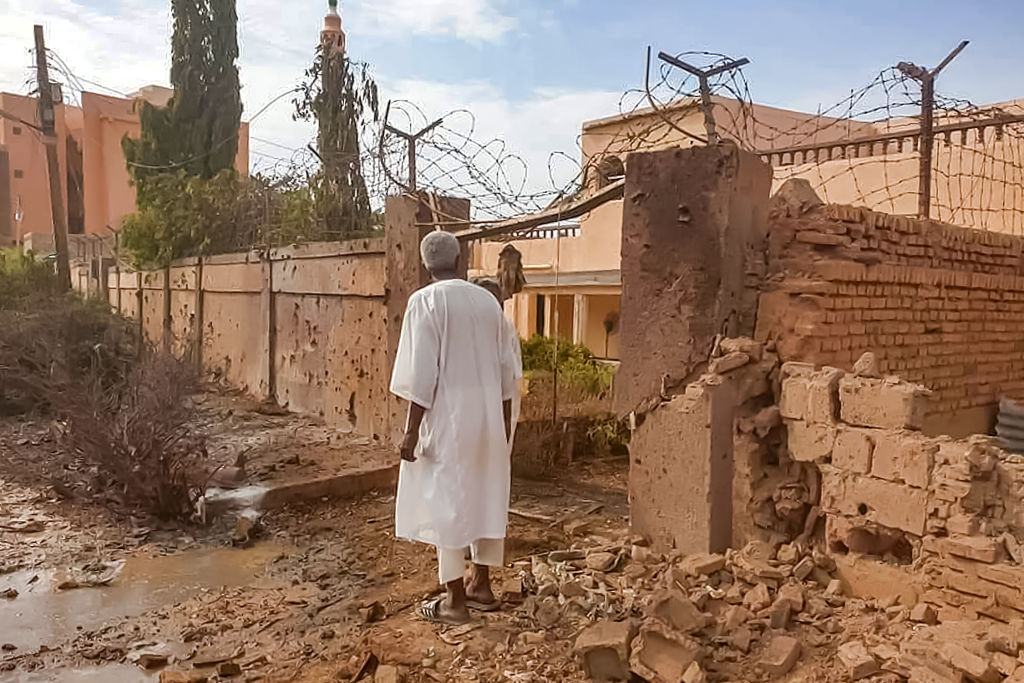ADF STAFF
Sudan’s warring generals have shifted the focus of their fighting from the heart of the capital, Khartoum, to Omdurman across the Nile River, as the army tries to break the supply lines of its rivals in the Rapid Support Forces (RSF).
The Sudan Armed Forces (SAF), led by Gen. Abdel Fattah al-Burhan, Sudan’s de facto leader, launched air strikes and used the army’s heavy artillery to attack RSF positions in the city. RSF fighters, led by the opposing general known as Hemedti, have taken over civilian homes since fighting began on April 15. In Omdurman, RSF fighters have engaged the SAF in street fighting and claimed to have shot down an SAF jet.
“There’s been very heavy bombardment for hours, air strikes, artillery and bullets. It’s the first time for us that there have been continuous strikes at this level from every direction,” Manahel Abbas, a 33-year-old resident of Omdurman’s el-Thawra neighborhood, told Al-Jazeera.
Fighting also has spread to Bahri, the third city of a broader metropolitan complex that includes Khartoum and Omdurman. Bahri, also known as Khartoum North, sits across the Nile from Omdurman.
Omdurman, Sudan’s most populous city, is a major transportation hub. It has become the focus of fighting because it is where the RSF has stationed reinforcements and materiel coming from its bases in Darfur.
“We are entering a new phase of the conflict where this is now becoming a war over supply lines,” Alan Boswell, the Horn of Africa project director at the International Crisis Group, told The New York Times. “And Omdurman is at the heart of it.”
In recent months, the RSF has consolidated its grip on the Darfur region, laying waste to the capital of West Darfur and killing the governor. The RSF recently conquered the capital of Central Darfur and scored victories against the army at Nyala, the capital of South Darfur. Militias in South Darfur recently pledged their allegiance to the RSF.
Any fighters leaving Darfur to join the fight in the capital region will gather in Omdurman, making them a potential target of SAF attacks.
“The bombing targeted gatherings of the RSF, who are heavily deployed in this area since there are barbecue restaurants and tea shops. They (RSF) come to spend time eating food, so the Army targets them with indiscriminate bombing,”Muhammad al-Mahi, a resident of the suburb of Umbudda al-Hara, adjacent to Dar el-Salaam from the eastern side, told the Ayin Network.
An SAF airstrike on a market in western Omdurman’s Dar El Salaam neighborhood in early July killed 37 civilians. The RSF condemned the attack for killing civilians. Army officials say the attack killed only RSF members.
Residents of Omdurman say the nature of the fighting makes it difficult to know which side is responsible for the destruction. Both sides have the kind of weapons that can destroy civilian buildings and critical infrastructure, such as water and electrical supply lines.
As an example, on July 11, the army deployed a drone to drop grenades on RSF members outside the Wad al-Bashir electrical substation in Omdurman. A few days later, on July 15, a drone attack by the RSF against the Medical Corps Hospital, one of the last functioning hospitals in Omdurman, killed four people and injured more than 20, according to reports by Reuters and an army statement.
The army statement said the RSF attacked with multiple drones in violation of international law that forbids violence against hospitals.
According to the Sudan Conflict Observatory, aerial photos of Omdurman’s El-Obeid pumping stations show significant damage that has reduced the facility’s ability to provide residents with fresh water. Fighting has destroyed more than 425 buildings in the region that includes Omdurman and Khartoum
“Sudan’s warring armies are showing reckless disregard for civilian lives by using inaccurate weapons in populated urban areas,” Mohamed Osman, Sudan researcher at Human Rights Watch, told Ayin Network.

